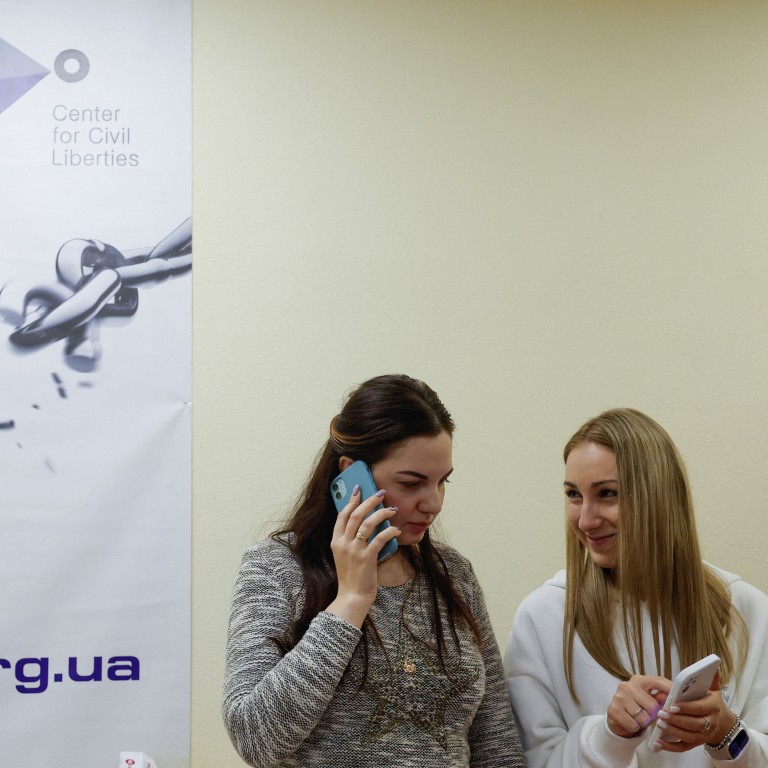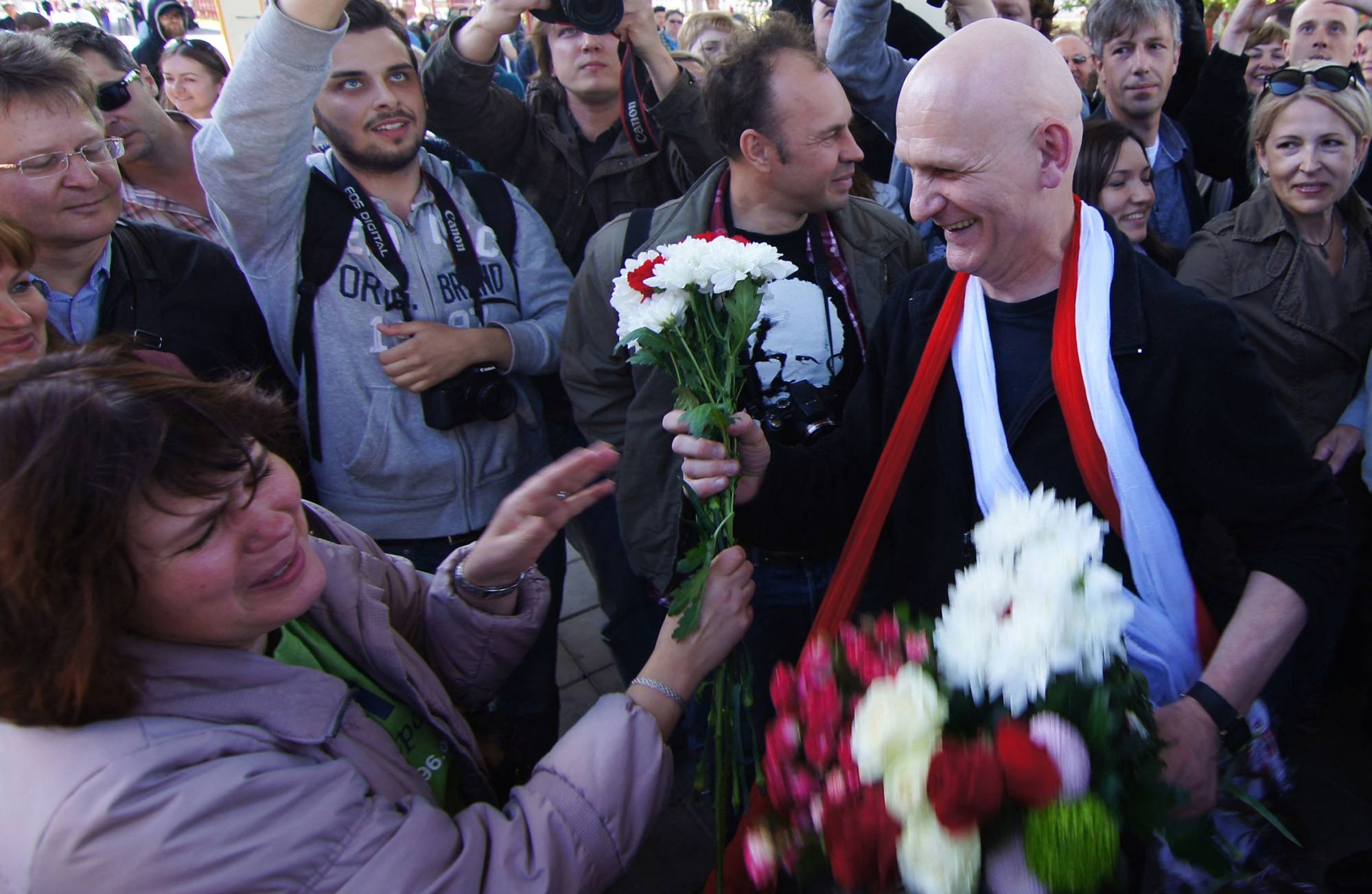
Nobel Peace Prize awarded to human rights advocates in Ukraine, Russia and Belarus
- It is the first time Ukraine has been awarded the prize. The Ukrainian NGO runs campaigns for political prisoners and tracks disappearances
- The Centre for Civil Liberties shares the prize with Belarusian human rights advocate Ales Bialiatski and Russian human rights group Memorial
This year’s Nobel Peace Prize has been awarded to the Ukrainian human rights organisation Centre for Civil Liberties, human rights advocate Ales Bialiatski from Belarus and Russian human rights organisation Memorial.
The climax of the Nobel season, the Peace Prize winner was announced in Oslo, Norway, on Friday.
“The Peace Prize laureates represent civil society in their home countries. They have for many years promoted the right to criticise power and protect the fundamental rights of citizens,” the Norwegian Nobel Committee said.
“They have made an outstanding effort to document war crimes, human right abuses and the abuse of power. Together they demonstrate the significance of civil society for peace and democracy,” the committee said.
The Kyiv-based Centre for Civil Liberties has run successful campaigns for political prisoners, tracked enforced disappearances and focused on Russian war crimes, but they did not see a Nobel Peace prize coming.
The Norwegian Nobel committee announcement sparked surprise and joy at the NGO’s centre. “When we found out the news, we were astonished,” CCL’s Anna Trushova said.
Belarusian, Russian, Ukrainian rights activists win Nobel Peace Prize
Set up in 2007, the group is led by rights defender Oleksandra Matviychuk, a lawyer who turns 38 on Saturday.
“It is above all a reward for Oleksandra (who) gathers around her incredible people and does immense work in the field of human rights,” CCL board member Alissa Malytska said.
Matviychuk, who was on her way from Poland to Ukraine when she heard the news, said in a Facebook message she was “delighted”. “We need to create an international tribunal and bring Putin, Lukashenko and other war criminals to justice”, she added, referring to the autocratic presidents of Russia and Belarus.
CCL gained prominence after 2014 by mounting awareness campaigns around Ukrainian political prisoners and prisoners in Russian-occupied parts of Ukraine – including the Crimean Peninsula, annexed by Russia in 2014, and the eastern Donbas region – as well as in Russia itself.
CCL’s best known prisoner campaign was for the filmmaker Oleg Sentsov. He directed Rhino, which was screened at the 2021 Venice film festival.
Arrested in Crimea after protesting against its annexation, Senstov spent five years in jail in Russia before being released in 2019 during a prisoner exchange between Ukraine and Russia.
CCL also tracks the enforced disappearances of rights activists, journalists and local council officials. Since Russia invaded Ukraine in February, the centre has also worked to identify and document Russian war crimes against the civilian population in Ukraine.
Relying on the help of volunteers, the NGO sent groups to suspected crime scenes. It also worked to facilitate the return to Ukraine of “tens of thousands” of compatriots who were forcibly taken from the war zone to Russia.
“We have already recorded more than 20,000 crimes,” Trushova said.

The 2022 Peace Prize was also awarded to Belarusian human rights advocate Ales Bialiatski and Russian human rights group Memorial.
Bialiatski, the head of Belarus rights group Viasna, won the Nobel Peace Prize in the wake of historic demonstrations and a severe crackdown in his ex-Soviet country.
His activism has been recognised with several awards, mostly from Western institutions, including the Andrei Sakharov Freedom Award. He was previously nominated for the Nobel Peace Prize five times.
Russia orders shutdown of oldest rights group
On Monday, the Medicine Prize kicked off the 2022 season, going to Swedish paleogeneticist Svante Paabo, who discovered Neanderthal DNA and the previously unknown Denisova hominin.
The Physics Prize on Tuesday honoured Alain Aspect of France, Austria’s Anton Zeilinger and John Clauser of the United States for their discoveries in the field of quantum entanglement.
On Wednesday, the Chemistry Prize went to another trio, Carolyn Bertozzi and Barry Sharpless of the United States together with Morten Meldal of Denmark, for laying the foundation for a more functional form of chemistry where molecules are linked together, called click chemistry.
French author Annie Ernaux on Thursday won the Nobel Literature Prize, the 17th woman to get the nod out of 119 literature laureates since 1901.
The Nobel season winds up Monday with the Nobel Economics Prize.
